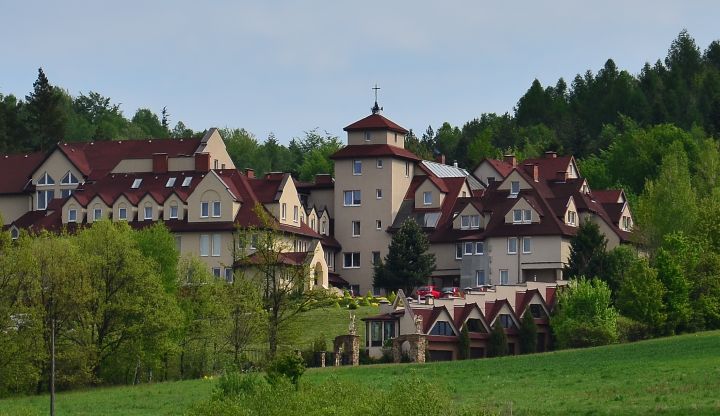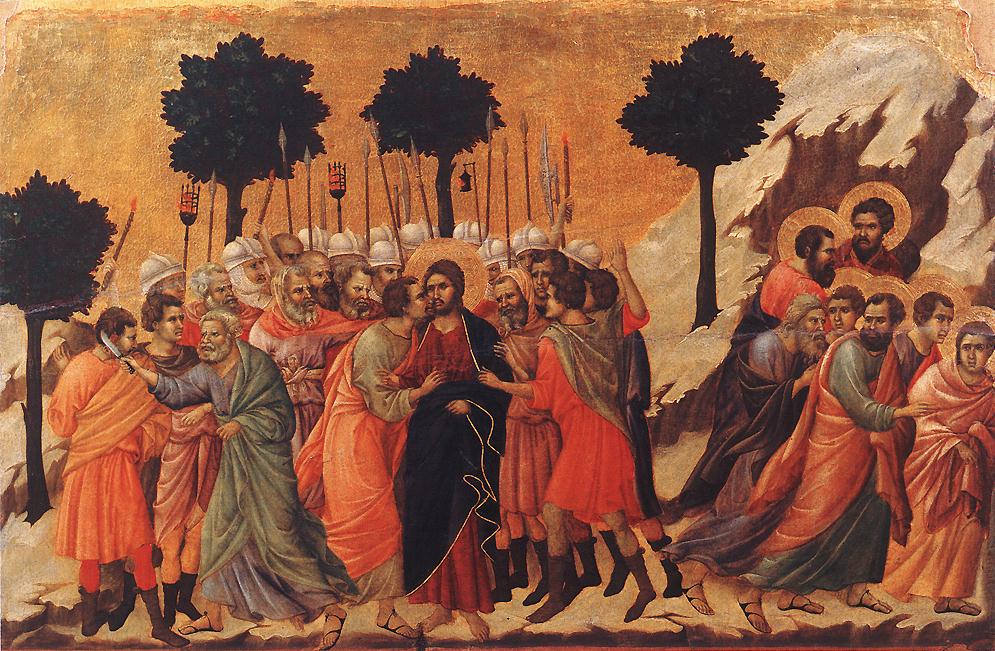Saturday of week 25 in ordinary time
St. Ignatius of Loyola Church, Zwierczyn, Poland
Readings at MassLiturgical Colour: Green
Remember your creator in the days of your youthRejoice in your youth, you who are young; let your heart give you joy in your young days. Follow the promptings of your heart and the desires of your eyes. But this you must know: for all these things God will bring you to judgement. Cast worry from your heart, shield your flesh from pain. Yet youth, the age of dark hair, is vanity. And remember your creator in the days of your youth, before evil days come and the years approach when you say, ‘These give me no pleasure’, before sun and light and moon and stars grow dark, and the clouds return after the rain; the day when those who keep the house tremble and strong men are bowed; when the women grind no longer at the mill, because day is darkening at the windows and the street doors are shut; when the sound of the mill is faint, when the voice of the bird is silenced, and song notes are stilled, when to go uphill is an ordeal and a walk is something to dread. Yet the almond tree is in flower, the grasshopper is heavy with food and the caper bush bears its fruit, while man goes to his everlasting home. And the mourners are already walking to and fro in the street before the silver cord has snapped, or the golden lamp been broken, or the pitcher shattered at the spring, or the pulley cracked at the well, or before the dust returns to the earth as it once came from it, and the breath to God who gave it. Vanity of vanities, the Preacher says. All is vanity.
O Lord, you have been our refuge from one generation to the next. You turn men back to dust and say: ‘Go back, sons of men.’ To your eyes a thousand years are like yesterday, come and gone, no more than a watch in the night. O Lord, you have been our refuge from one generation to the next. You sweep men away like a dream, like the grass which springs up in the morning. In the morning it springs up and flowers: by evening it withers and fades. O Lord, you have been our refuge from one generation to the next. Make us know the shortness of our life that we may gain wisdom of heart. Lord, relent! Is your anger for ever? Show pity to your servants. O Lord, you have been our refuge from one generation to the next. In the morning, fill us with your love; we shall exult and rejoice all our days. Let the favour of the Lord be upon us: give success to the work of our hands. O Lord, you have been our refuge from one generation to the next.
Alleluia, alleluia! Open our heart, O Lord, to accept the words of your Son. Alleluia!
Alleluia, alleluia! Our Saviour Jesus Christ abolished death and he has proclaimed life through the Good News. Alleluia!
They were afraid to ask him what he meantAt a time when everyone was full of admiration for all he did, Jesus said to his disciples, ‘For your part, you must have these words constantly in your mind: “The Son of Man is going to be handed over into the power of men.”’ But they did not understand him when he said this; it was hidden from them so that they should not see the meaning of it, and they were afraid to ask him about what he had just said. The Creed in Slow Motion19. Out of Mary the Virgin By the Holy Spirit, of the Virgin Mary.
Or listen to a short extract: The readings on this page are from the Jerusalem Bible, which is used at Mass in most of the English-speaking world. The New American Bible readings, which are used at Mass in the United States, are available in the Universalis apps, programs and downloads. You can also view this page with the Gospel in Greek and English. |




